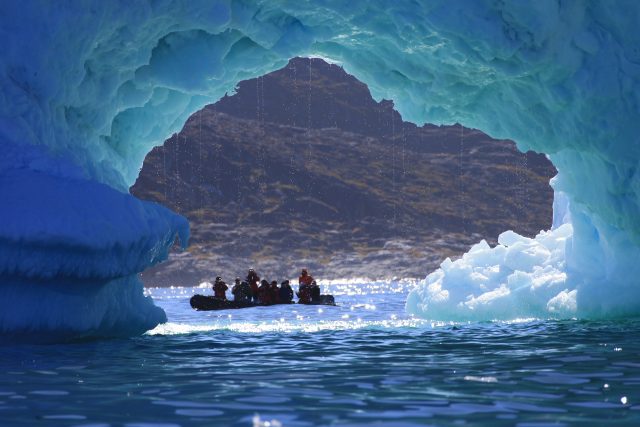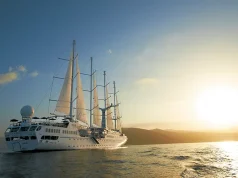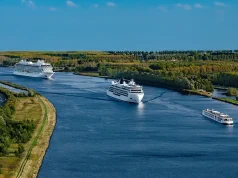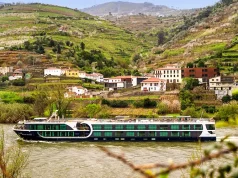
Polar expedition cruise operator, One Ocean Expeditions (OOE), is proud to support nationally and internationally accredited scientific programmes, working with renowned scientists at both poles and beyond. These partnerships actively contribute to the protection and maintenance of the fragile Polar Regions, contributing to a long-term positive environmental impact.
At the centre of all OOE programming is a core commitment to ocean and environmental health. Additional to the support of scientific research programmes, OOE aims to inspire passengers to become ambassadors for the ecologically sensitive destinations it travels to. Through the implementation of authentic itineraries and unique on-board experiences, OOE aims to build interest and respect from their passengers for the ecosystems they travel to. By combining tourism with meaningful scientific research, OOE is creating an incredible opportunity for passenger engagement.
OOE gives up to 120 days per vessel each year to world leading research, providing countless opportunities to learn more about the delicate environments visited and how they can be better protected. The health of the oceans in the Polar Regions is a key indicator as to the effect of global environmental change, which makes continued study all the more vital to their protection. Through established partnerships with universities, scientific organisations and government institutions, scientific researchers are able to take advantage of OOE’s purpose-built research vessels throughout the expedition season and into the off-season.
Akademik Ioffe and Akademik Sergey Vavilov are both uniquely kitted out to undertake scientific research. Both ships are Lloyds 1A ice-strengthened, have wet lab space with direct sea water intake, 5 tonne cranes, the ability to support towed array and fixed-mount multi-beam sonars and are capable of deploying carousels for depth sampling. 24/7 access to the bridge, weather permitting, creates invaluable opportunities for ornithological study. A fleet of Zodiacs carried on board and manned by OOE’s specialist expedition team members are able to navigate even the most remote waterways and shorelines, making these two vessels ideal hubs for scientific activity.
World-renowned institutions make use of OOE’s vessels for scientific study year-round. From micro plastic research and penguin population studies to marine mammal research and radio carbon-dating, each method of study is different. However, the goal remains the same: to preserve and protect the Polar Regions and their oceans. Marine biologists from the California Ocean Alliance and Antarctic Division travel to Antarctica each year with OOE to conduct cutting-edge research on whale populations and behaviour. Whilst on land, Oceanites researchers have been travelling south with OOE since 1994, counting penguins in a bid to assess the impact of climate change and its effect on penguin populations.
Face to face contact with nationally accredited scientists gives OOE’s guests the chance to learn and share the importance of their research. August 2018 sees Ocean Wise, a global ocean conservation organisation, focused on protecting and restoring our world’s oceans, begin the first ever permitted dives in the Canadian Arctic. Guests onboard will be able to view and handle specimens collected during these dives in OOE’s onboard shallow water tanks and use mechanical sieves to analyses the contents of non-filtered seawater looking for micro plastics.
In September 2018, OOE passengers onboard Akademik Sergey Vavilov will be joined by scientists from Scott Polar Research Institute (SPRI) in Cambridge. Driftwood samples collected by SPRI scientists during Zodiac beach landings will be analysed to reconstruct ocean current dynamics, changes in sea-ice extent and relative sea level of the Arctic coastlines, contributing to an enhanced understanding of the ocean-transport and temperature history of the West Greenland and Baffin Island area.
For more information about One Ocean Expeditions: https://www.oneoceanexpeditions.com





